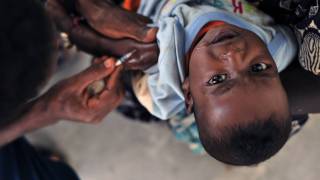Counselors Increased Newborn Vaccinations by 7.5%

According to a recent McGill University article, deploying an ‘empathy-driven’ approach to discussing immunization with new mothers can help reduce vaccine hesitancy.
And, protect newborn infants from vaccine-preventable diseases.
This is good news since the World Health Organization (WHO) listed “vaccine hesitancy” as one of 10 threats to global health in 2019.
A research team tested and validated an intervention approach that significantly increased the intention of vaccination (15%) within parents who had received the intervention but also increased their child vaccination coverage (7.5%) at 7 months of age.
This 2018 study called PromoVac tested this vaccination intervention approach in the Estrie region of Quebec with nearly 2,400 families.
The better news is McGill University says the “Motivational Interview in Maternity for the Immunization of Children” (EMMIE) program is now being implemented in 15 hospitals in Quebec which together see over 50 percent of all births in the Canadian province.
The goal of the EMMIE Program is to encourage positive parenting attitudes toward immunization to better meet the recommended childhood immunization schedule.
The EMMIE intervention is a standardized information session lasting approximately 20 minutes during the postpartum stay of mothers in maternity care or during the baby's neonatal care.
The information session is based on motivational interviewing techniques for immunizing children with their parents. This moment in the hospital seems to be ideal for discussing the vaccination of their newborns.
The EMMIE approach is mostly used when someone is hesitant to make a choice.
The immunization counselor uses open-ended questions, affirmative statements, reflective listening, and careful summarization to help the new mother deal with any vaccine resistance she may have and become empowered to immunize her child.
Motivational interviewing is a proven technique that has been used for many years, especially in quitting smoking.
The WHO says vaccination is one of the most cost-effective ways of avoiding disease – it currently prevents 2-3 million deaths a year, and a further 1.5 million could be avoided if global coverage of vaccinations improved.
The reasons why people choose not to vaccinate are complex.
A vaccines advisory group to WHO identified complacency, inconvenience in accessing vaccines, and lack of confidence are key reasons underlying hesitancy.
Health workers remain the most trusted advisor and influencer of vaccination decisions, and they must be supported to provide trusted, credible information on vaccines.
In 2019, the WHO and partners are committed to supporting various programs to vaccinate every last child to eradicate preventable-diseases for good.
Our Trust Standards: Medical Advisory Committee
- Motivating Parents to Vaccinate: A Quebec Initiative
- Impact of a vaccination promotion intervention using motivational interview techniques on long-term vaccine coverage
- Motivational Interviewing Program for Childhood Immunization (EMMIE)
- Informed Parents for Healthy Kids
- WHO: Ten threats to global health in 2019


























